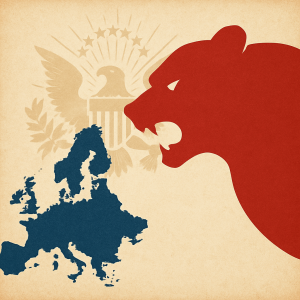What if it is not at all incoherent? What if, on the contrary, the way in which the United States has just reaffirmed its long-standing ties with the Saudi Kingdom while at the same time naming the Crown Prince as the instigator of Jamal Khashoggi’s assassination set a precedent for a new doctrine?
On Friday, within minutes of the publication of the CIA report explaining that Mohammed bin Salman’s trusted men could not have assassinated this opponent if the Crown Prince had not asked them to do so, CNN journalists, correspondents and analysts were losing their minds. Come on!, they said, the reigning sovereign is 85-year-old , his son has been in command for several years and controls everything so well that nothing will prevent him from succeeding his father when the time comes and what will the United States do then? Will they break off their relations with Riyadh? Will they maintain them but refuse to receive an assassin in the White House? Or will America now favour, as we are hearing between the lines, “a palace revolution” that will get it out of this bad situation?
This rather general confusion persists, because, although rare are those who disapprove this willingness to call a spade a spade and “MBS” an assassin, one does not comprehend what the next move could be, something that every political decision must foresee.
One wonders, investigates, assumes, but fails to see that the next move is quite simply the one of today.
By having published this CIA report, which Donald Trump had classified as secret, Joe Biden has just told all the regimes of the world – friends or adversaries, allies or enemies – that the United States no longer intends to be complicit, even through its silence, in political assassinations or persecutions and would no longer hesitate to denounce all human rights violations and their perpetrators. By refusing to sanction MBS personally, he also told the world that the United States would obviously not go so far as to go against its national interests and the common need to maintain relations with all existing countries.
What has just been stated is indeed a doctrine and, so that no one should doubt it, it was to Saudi Arabia, the allies of the allies, that it was first applied. It took Joe Biden a month to make a first official contact with Riyadh, because Jamal Khashoggi was not only a Saudi but also an editorialist for the Washington Post, one of the two largest American dailies. Once this period of disapproval had passed, Joe Biden called King Salman, his interlocutor designated by protocol, and not this Crown Prince who, for the time being, is only Minister of Defence but whom Donald Trump assiduously cultivated. This is the second stage and finally comes the third with the publication of this CIA report.
The message is, firstly, that just because they need Saudi Arabia and it needs them, it doesn’t mean that the United States should cajole a criminal and, secondly, that if that criminal ends up on the throne, it won’t make him a friendly democrat of the White House, but it won’t change the need for the alliance between the two countries, either.
This may make many world leaders think, and if not, at least the United States can no longer be blamed for forgetting its principles as soon as it gets in the way of its raison d’état.
The Biden Doctrine is that no government can ignore the interests of its country, but that no democracy should turn a blind eye to contempt for human rights, and that there is no practical contradiction in this. The United States has just overcome a false dilemma that democracies have been caught up in for too long. It is now to be hoped that they will stick to that doctrine and that the European Union will be able to draw inspiration from it in its relations with China and Russia.



